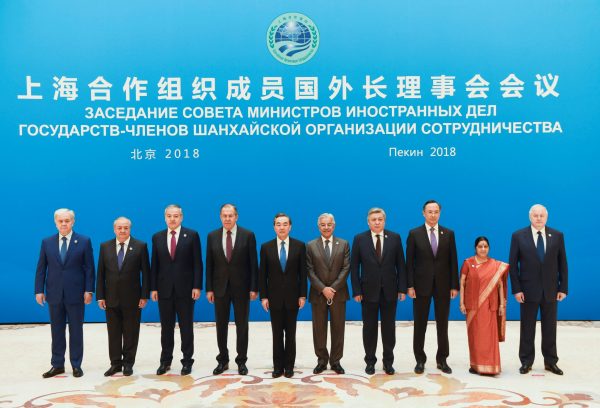At the same time, weak economies in most Central Asian states are contributing to rising debt levels, with much of the debt owed to China. When combined with a common China–Russia front in the face of adversarial US policies, Central Asian governments are left with little room to manoeuvre.
This comes at a bad time for Central Asia, with China demanding major concessions in exchange for access to the region’s financial resources and implementing controversial policies in Xinjiang — policies that continue to ensnare citizens of Kazakhstan and Kyrgyzstan.
2018 has not been kind to Central Asia economically despite the region’s active involvement in the Russian-led Eurasian Economic Union (EEU) and China’s Belt and Road Initiative (BRI). On the contrary, Central Asia’s dependence on Russia for exports meant that weaknesses in the Russian economy and currency quickly spread to the region, starting with a rapid weakening of Kazakhstan’s own currency.
Tajikistan’s and Kyrgyzstan’s already high external debt levels are projected to increase further in coming years. Years of Russian foreign aid and remittances from Central Asians working in Russia may have prevented Tajikistan’s and Kyrgyzstan’s economies from collapsing, but they have not produced sustainable growth.
Given Russia’s limited economic capabilities, China has become a natural partner in Central Asian economic development. But China now requires collateral in exchange for its loans, demanding operating control of a gold mine in Tajikistan and various assets in Kyrgyzstan in the event of either country defaulting on its loans.
China’s economic dominance has three implications for Central Asia’s ability to maintain an independent foreign policy.
First, China’s economic dominance demonstrates the lack of options available to struggling Central Asian governments, which undermines the region’s already weak leverage vis-a-vis its assertive neighbour. China may claim that its BRI projects do not interfere with Russia’s EEU, but it is nudging Central Asian elites into China’s orbit — something Russia does not believe it can stop.
Even if Russia could stall China’s rise in Central Asia, it cannot afford to jeopardise its mutually beneficial but asymmetrical relationship with China in the middle of a protracted dispute with the United States and the European Union over Ukraine. Russia will grudgingly accept China’s expanded role in Central Asia, as long as China treats Russia as the great power it believes itself to be.
Second, China’s economic dominance is contributing to an increasing divergence between the preferences of Central Asian elites and the public. Trade between Central Asia and China is creating numerous financial opportunities for Central Asian government officials and oligarchs, who are keen to grow those commercial links. A large segment of the public, on the other hand, still buys into Soviet-era claims about China’s inevitable demographic dominance in the region —claims that are buttressed by the use of Chinese workers on China’s foreign projects.
Third, pro-Chinese Central Asian elites are placed in an awkward position when China cracks down on its Turkic minorities for allegedly supporting extremism. Not only has China placed as many as one million Uyghurs in internment camps, it has also detained ethnic Kyrgyz and ethnic Kazakhs — including citizens of Kazakhstan.
This is a potentially explosive issue that is bound to get significant attention in the affected countries, even if their governments (which themselves have a history of cracking down on alleged extremism) do not go beyond issuing vague statements opposing Chinese behaviour. Elites increasingly at odds with a nationalist public will have few good options at their disposal as China becomes a more regular and prominent concern.
China does have one weakness in Central Asia compared to Russia: the provision of external security assistance. China, Russia and most of the Central Asian states are part of the Shanghai Cooperation Organisation, which is currently focussing on internal security challenges like radicalisation. China has admitted to beginning construction of a military base in Afghanistan, though the details are still unclear. Until China’s military role in the region drastically increases, Central Asian states will remain reliant on military assistance from Russia, which already has military bases in Kyrgyzstan and Tajikistan.
Russia is seen as the last line of defence against the spread of violence from Afghanistan. Russian planes were likely responsible for an August 2018 airstrike against the Taliban in Afghan territory bordering Tajikistan. Russia’s improving relations with Uzbekistan, which all but eliminates a United States return to the region, has removed the main obstacle to Russia’s monopoly on the provision of security in Central Asia.
Central Asian governments, already limited in their options by geography and poorly diversified economies, are losing the limited leverage they once had over Russia and China. With growing Chinese economic dominance and Russian military dominance, Central Asian rulers will be forced to play a more passive role in regional affairs until an external shift, like a potential fracture in the China–Russia relationship, transpires.
Gennady Rudkevich is Assistant Professor at Georgia University.

